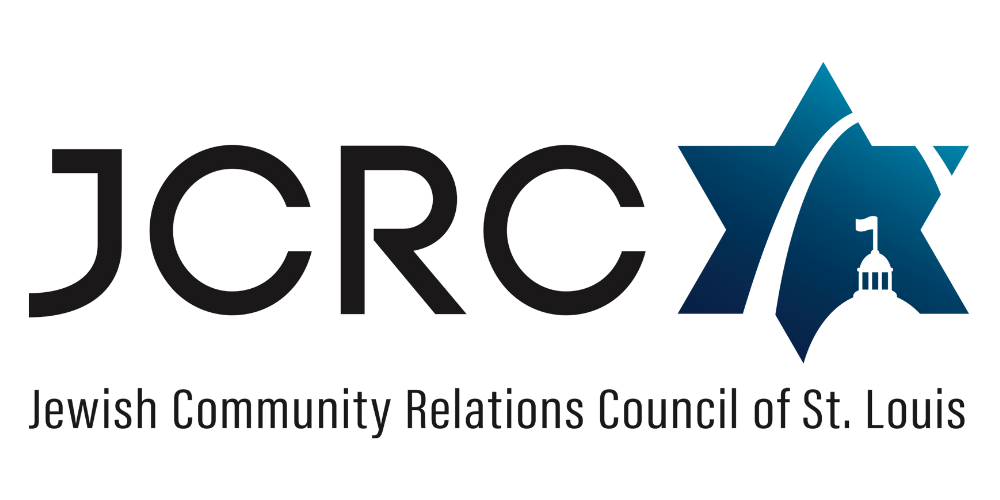March 2011 Role and Funding of State Government
The following position was voted upon and passed unanimously by the JCRC Council at its March 15, 2011 meeting.
The Jewish Community Relations Council believes there are a number of appropriate and critical roles for state government to play in the lives of Missourians. One such role is fostering a climate and infrastructure conducive to economic growth and job creation. Another is making Missouri a thriving and vibrant place to live, attractive to both individuals and businesses. Also, state government is responsible for providing the environment and resources necessary for Missourians to be safe and secure, well educated and healthy, so as to have ample opportunities for gainful employment and self fulfillment. A further role of government, flowing directly from our Jewish values, is providing a social safety net, to ensure that the basic human needs of the less fortunate among us are met. In these and other respects, the state government has a different and more direct role in ensuring the well-being of its citizens, as compared with the federal government’s role.
Recently, the Missouri state government has struggled to fulfill these important governmental functions. Missouri ranks 45th in the nation in funding higher education, and 35th in funding K-12 education. Year after year, the K-12 school funding formula, teacher training programs and scholarship programs are seriously underfunded. We are last in the nation in spending on tobacco use prevention and cessation, and have the lowest tobacco tax in the country. Since 2005, over 180,000 people have been dropped from Missouri’s Medicaid program, and are without health coverage and care, due to lack of funding. Additionally, Missouri fails to make available to thousands of qualifying residents programs offered by the federal government-- and 80-90% paid for by federal funds—such as the Children’s Health Insurance Program. Missouri is last in the nation in subsidized child care.
These struggles cannot properly be viewed as stemming solely from the current economic downturn. During the 2007-09 time frame, the Missouri General Assembly passed significant tax cuts totaling more than $300 million, in the face of projected budget deficits. Nor can Missouri’s budget woes properly be viewed as the product of an overly burdensome tax structure. Indeed, Missouri is among the lowest tax states in the country. Yet, the growth rate of Missouri’s economy lags behind much of the rest of the nation.
From the constant demands upon our state government for increased services, and the difficulties encountered in making cuts sufficient to balance Missouri’s budget, it appears that many Missourians desire a greater level of government services than can be funded at current revenue levels. However, in trying to find an appropriate balance between the level of government services that Missourians want and need, and the revenues necessary to pay for them, our state government has been utilizing less than the full array of tools available to it.
The two variables which go into striking an appropriate balance are, of course, revenues and expenditures. But, over the past few years, due to anti-tax sentiment and measures such as the Hancock Amendment, Missouri officials have focused exclusively on the expenditure side of the equation in striving to make ends meet. The JCRC believes that omitting consideration of the revenue side of the equation as one facet of the government toolbox is unwise, and has been inimical to the interests of Missouri citizens, including members of the Jewish community.
The JCRC supports a balanced approach of considering both expenditures and revenues as a means of striving to make sure that government effectively performs its important functions, and believes there are a number of promising ways in which the revenue side of the equation might be addressed. By way of illustration, some of the potential approaches that appear worthy of consideration include adopting the streamlined sales tax for interstate sales, increasing the tobacco tax, repealing the yacht sales tax exemption, eliminating the corporate discount for timely remitting of withholding taxes, adopting combined reporting legislation for multi-state corporations, and modernizing and reforming Missouri’s income tax laws, which date back to 1931.
In supporting consideration of the revenue side of the equation, the JCRC in no way means to minimize the importance of other approaches to sound fiscal policy, including controlling spending and using tax credit programs where they are most effective and beneficial. What is needed is a balanced approach, involving consideration of all available tools.

